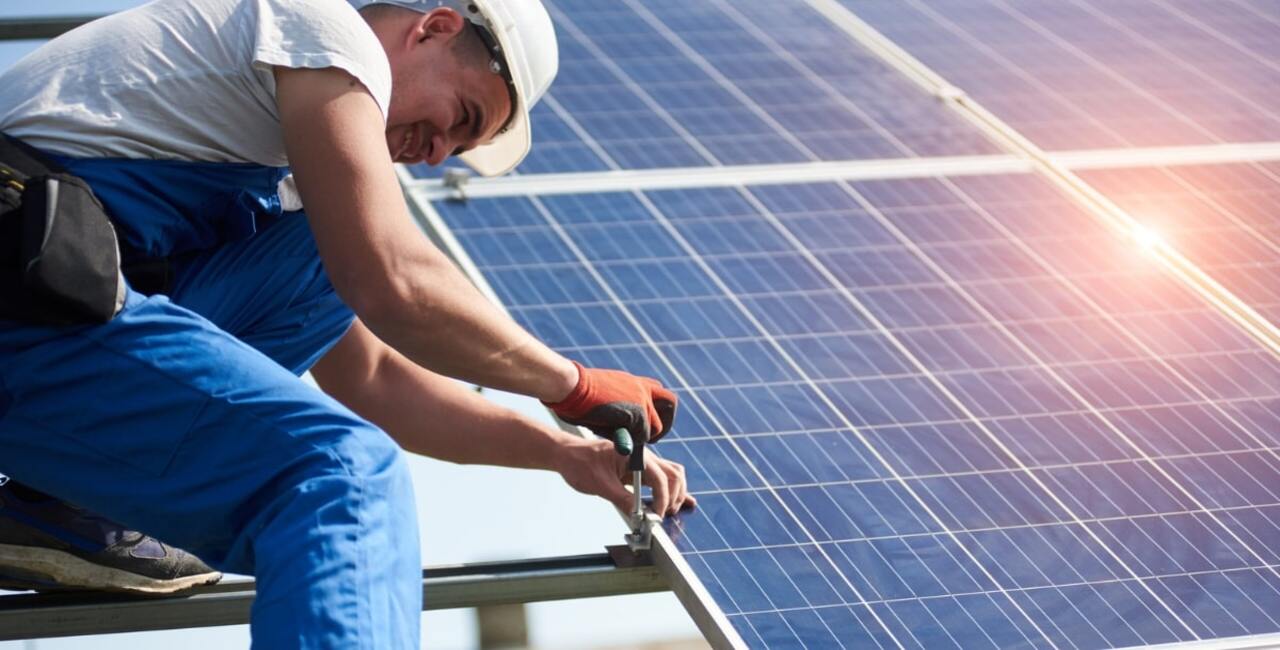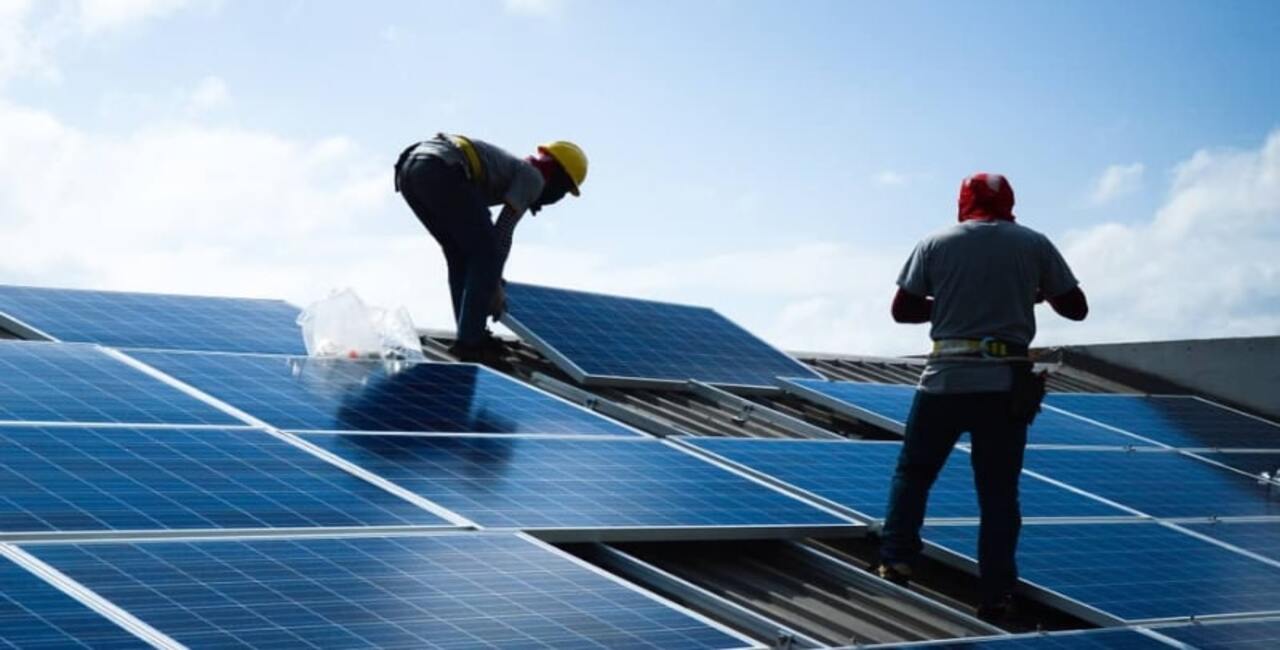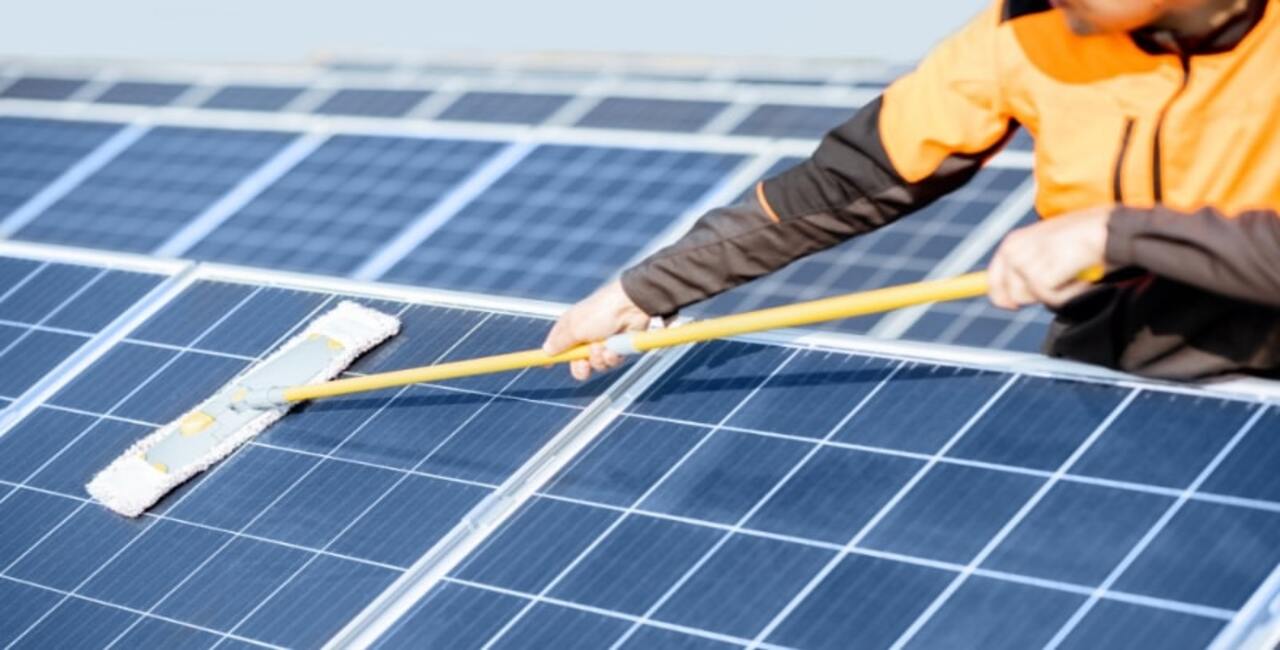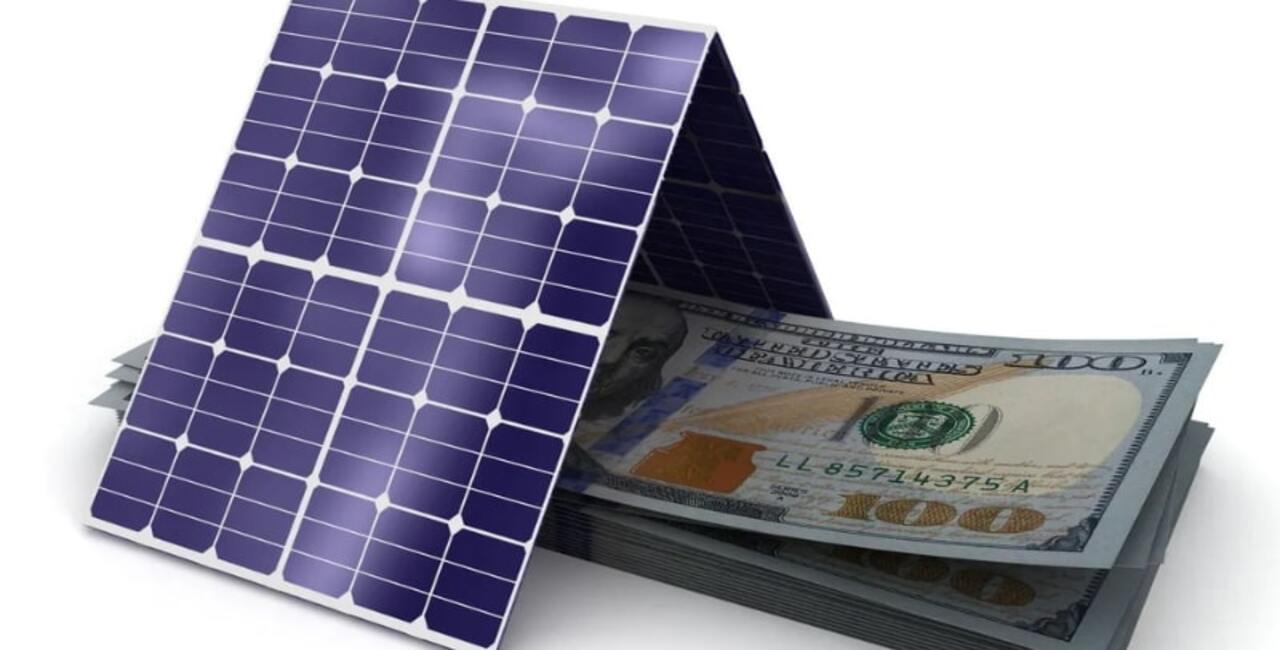Solar 101: After Installing a Solar System: Things to Take Care of

Solar panels are a great investment for any homeowner. One can continue reaping their immense power-saving and clean energy benefits for the next 20 to 30 years. But if you think that post-PV installation, your work is done, then you are highly mistaken.
Just like any other home appliance, solar panels demand regular monitoring and upkeeping to ensure maximum productivity.
But how do you maintain your system? Or should you better contemplate how to clean solar panels?
Don’t worry.
Solar panels don’t require heavy maintenance other than keeping them clean at regular intervals and preventing any shadow casting. They are themselves sufficient to bear any extreme weather conditions, such as hail, snow, or rain.
For better understanding, we have created this Solar 101 post-installation maintenance blog in which we will share the best tips to maintain and clean your PV system effectively.
So, without further ado, let's dive into them.
Things to Take Care of Post-Solar Panel Installation

Schedule a solar system inspection
After your solar system installation, the first thing that needs to be taken care of is passing the solar inspection. Since the PV installation involves a lot of electrical and construction work, your local authority and utility provider go through a final inspection from a safety point of view.
For auditing, an inspector will come. They will overview the whole system, including wiring, components, and structure. If they find no issues, you are ready for the next step.
Obtaining permission to operate (PTO)
After passing the inspection test, the next thing is to set up the solar interconnection and obtain permission to operate from your utility provider. Similar to pre-installation approvals and permits, this too follows an approval process. The only difference is that this time you will work with a utility provider.
After all the necessary checks, they will set up the net meter to monitor your daily energy production.
Keeping track of system performance
This is another crucial part of the post-installation Solar 101 guide. Monitoring your system performance daily helps you stay aware of your daily electricity consumption and production, any potential power drop or damage that requires immediate repair, or room for optimization.
Most solar providers set up the solar monitoring system with the inverter via a mobile app. This gives the homeowners a real-time insight into system efficiency.
Check your power bill
After all, that is why you have taken so much hassle with installing solar panels - to lower your power bill. If you have not paid attention enough, now's the time. To better assess your system's performance, ask yourself the following question:
Has my electricity bill dropped more than the last time?
The bill you receive only shows grid usage, not solar power consumption. But you can get the idea by comparing the dropping amount of grid electricity to the pre-installation times.
If your bill is on the lower side, then congratulations; your solar system is working up to expectations. If not, you need to check it through your installer.
Routine Examination
Installing solar panels alone does not guarantee you the maximum returns on investment; regular inspection of the solar power system does. Visually examining your panels consistently helps you detect any damage or problems in the early stages and reduces the maintenance of the solar panels in the long run.
For instance, there could be chipped wires, loose connections, or cracks in the solar panel glass. By locating such loopholes, you can save yourself from any long-term system deterioration loss and do the prompt fix.
Regular cleaning for maximum performance
If you truly want your solar system to keep rewarding you with long-term power and bill-saving benefits, then you need to clean them regularly.
This is even more important if you are living in an area more exposed to little chicks, dirt, pollution, or rainfall. The dust or debris accumulated on the panels can significantly impact their power production efficacy. Regular cleaning will remove all these dirt and particles.
Professional Maintenance
It’s good if you can maintain your panels all by yourself, but in case of any doubts, don’t hesitate to sign up for professional solar panel upkeep services. These experts have in-depth knowledge and techniques for inspecting, cleaning, and repairing the panels.
They also follow the necessary safety practices and warranty protection because, in some cases, the manufacturers demand experienced cleaning to maintain the warranty plan.
Solar Panel Cleaning 101: Tips
Many homeowners wonder: How do I clean solar panels? The good thing is that cleaning panels is not rocket science. It’s easy, simple, and requires you to follow the below-described practices to get the job done without causing any scratches or damage. Let's have a glimpse at them:
- Always use a soft cloth and water: While cleaning solar panels, always avoid using abrasive materials that could end up scratching them. Instead, use a soft cloth or sponge along with water to gently remove any dirt or debris from the surface.
- Avoid abrasive chemicals: Using abrasive or harsh chemicals, such as ammonia-based solutions or harsh soap powders, can again damage their external coatings and reduce their power production efficiency. They could even result in nullifying your warranties.
- Don’t wash hot solar panels: Never wash your solar panels when they are hot. This is because the constant exposure to the sun leads the PV modules to operate at a higher temperature. Now washing them with cooler water will immediately drop their temperature and result in cracks on the panel surface.
So, for safety reasons, always clean panels when they are cooler. The ideal time would be early in the morning and after sunset. It is also important to note that solar panels may still be hot even after sunset on sunny days.
Use safety tools
To ensure the safety of you and others, it is crucial to follow all the safety measures while cleaning panels. For instance, use safety ropes to protect yourself in case of a fall due to the slipperiness of the roof surface.
Invest in reliable automatic cleaning systems
If you live in an area prone to frequent rainfalls, dust, or pollution, then it would be wise to invest in reliable automatic cleaning systems. Such systems use low water pressure to clean the panels, reducing manual work and ensuring maximum productivity.
Solar Panel Maintenance 101: Tips

Part of your solar panel maintenance is done if you have already cleaned the panels. Additionally, to upkeep your PV system, follow the below-mentioned practices:
- Prevent shading: Shading could be the worst nightmare for homeowners. It could be due to shadows cast by fallen leaves, bird droppings, debris, or dust. According to some experts, shading can reduce 40% of the power production efficiency of a solar system. So, keeping your solar panels free of any kind of shading is important.
- Ensure that the inverter shows a green light: The green light in the solar inverter signifies that the system is operating normally and producing the estimated amount of electricity. But if your inverter is flashing a green light, this means your PV system is connected to the utility grid but is not producing any power. This usually happens when the panels are covered with snow.
- Document everyday system performance: To keep your system maintained around the clock, it is wise to document its everyday performance. Like how much power it generates on sunny days, how much on cloudy days, and how much on rainy days. Also, any kind of electricity production inconsistency during the same weather days would give you a hint that your system requires maintenance.
How Often Should You Maintain or Clean Your Solar Panels?
According to the Energy Power Association, the dust, dirt, or debris accumulated on the panels can reduce their power production efficiency rate by 20%. This number is even bigger at 25%, according to the National Renewable Energy Laboratory, whereas recent research shows that the decline in efficiency of dirty panels is 50%. Therefore, it is imperative to maintain and clean your solar panels.
But how often?
Well, there is no hard and fast rule for cleaning frequency. But a good rule of thumb says that it should be done 3–4 times a year to ensure the maximum productivity rate. Moreover, there are additional factors that can impact the maintenance frequency. These include location, season, and the types of PV panels.
For instance, if your home resides in a desert area, there are more chances of dust accumulation on the solar system, and hence, you will need to clean them every 1-2 months. Similarly, if there is a winter or spring season, there are more chances of hail storms, fallen dry leaves, or other droppings on the system.
Furthermore, it is also important to weigh the types of panels installed on your property. If the panels are older and have texture, they would demand more frequent upkeep as compared to newer and even more expensive panels.
Thus, ideally, considering these factors and taking care of your panels every three months will help you maintain the performance of your system.
In addition to cleaning the panels, you also need to check the installation wires or connections to see if they are working fine or not. This is because, at times, some beasties bite the wire without you even realizing it. So consider that too, and check every few days.
How Will You Know When to Maintain Your Solar Panels?
Ideally, it is suggested to clean solar panels every 3 to 6 months, depending on the location you are currently lining up and also the other external parameters. But besides that, how would you know it’s time to recheck or maintain your system? What are the indications?
To know whether it's time to maintain your panels or not, you need to constantly monitor the power production rate of your solar panel system. Any kind of prolonged production dip or inconsistency in the power supply is an indicator of upkeep for your panel.
Moreover, it is also important to know that the efficiency rate of solar panels tends to drop as they age. For instance, usually the lifespan of solar panels is 25–30 years. Some work goes even beyond. So if your panels are already more than 10 years old, chances are their performance might not be the same or a little degraded.
However, this should not be the case for the newer panels. So, consider this point. Also, this kind of short-term reduced power drop could be the result of dirt or other litter piling.
How Much Does Solar Panel Maintenance Cost?

The cost of solar panel maintenance includes the site inspection (if you can do it yourself) and the cleaning charges. The collective cost would cost you around $150 to $180 a year, whereas the individual prices would be $150 each.
However, the final charges would depend on your location and the size and complexity of your system. According to the National Renewable Energy Laboratory, the yearly maintenance cost of a solar power system is nearly $31 per kW of installed size. So, if you have a 6-kw system installed on your property, it would be around $180.
Final Words
So, that is all about the post-installation soSolar01 guide!
Solar panels are always a piece of work, whether it’s pre-installation or post-installation. To ensure that your panels are working properly and are rewarding you with their maximum production efficiency, it is important to maintain and clean them regularly.
All the aforementioned upkeep tips will help you keep your system in the right condition. Moreover, always have your warranty terms and conditions checked to get their benefits on time and save on maintenance and servicing costs.

